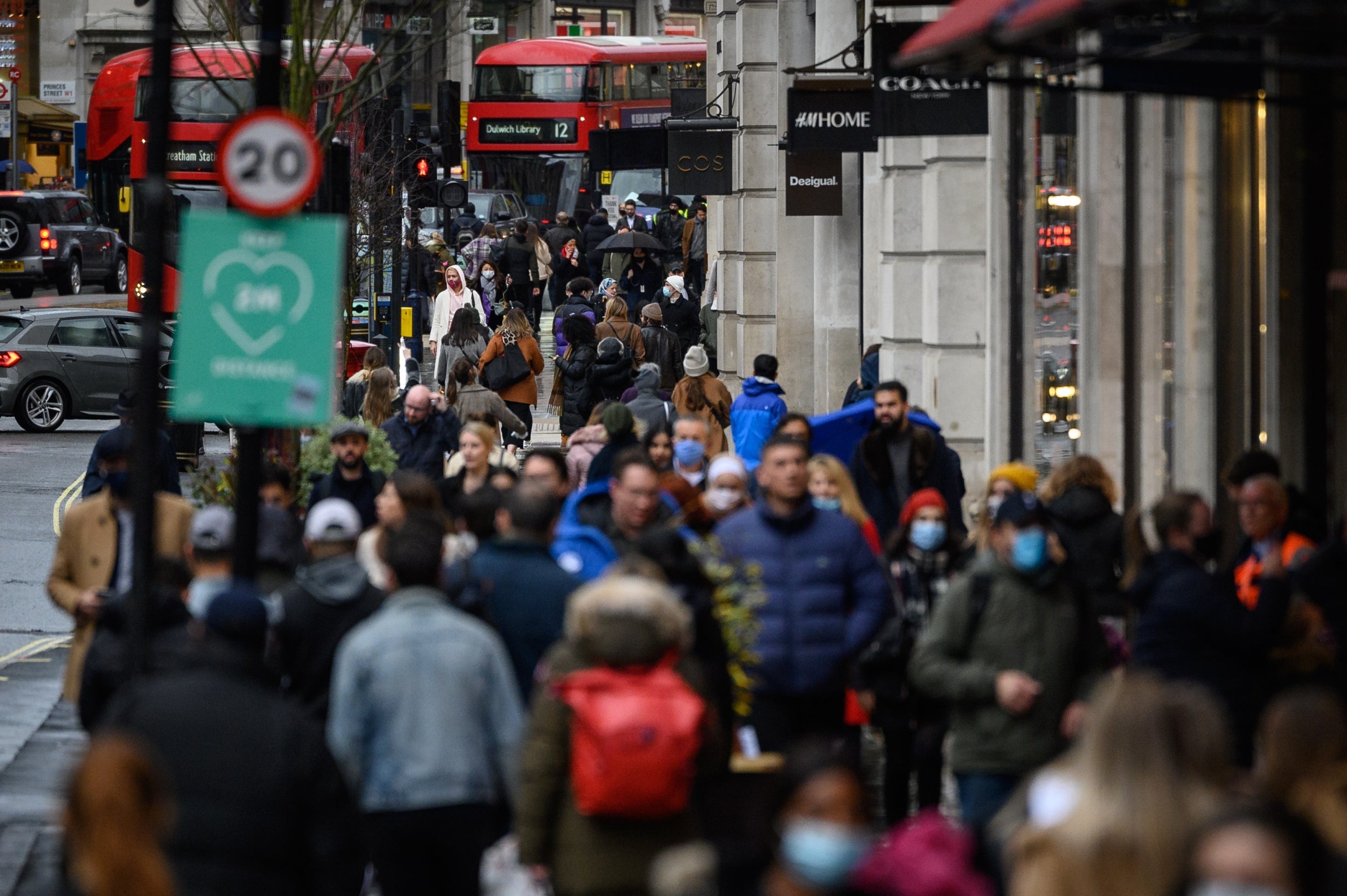Klarna’s launch of a card is crashing into the cost-of-living crisis
A recent report by StepChange found 4.4 million borrowed £13bn to pay everyday bills, so making it easy to get into debt to pay for goods in bricks-and-mortar shops is like throwing petrol on a bonfire, writes James Moore


When it comes to the cost-of-living crisis, the Klarna card – announced last week in your choice of pink or black – is like lobbing a can full of petrol onto a bonfire. Say your prayers, Mr Fawkes.
The people working at debt charities could well be left feeling like the luckless Guy if it all kicks off. Let me explain: Klarna is the biggest, and arguably the best known, of a raft of buy now, pay later firms that mostly operate over the internet.
The card makes it much easier to use its service in retailers’ bricks-and-mortar stores (it’s already in some of them via apps and QR codes). Users will at first be restricted to the “pay in 30 days” part of the service, but payment via three monthly instalments is likely to follow.
Alex Marsh, head of Klarna UK, gave a clear pointer in the company’s launch press release as to how the company is trying to sell this to sceptics. “Consumers are rejecting credit products which charge double-digit interest rates while allowing repayments to be put off indefinitely. For online purchases where credit makes sense, buy now, pay later has become the sustainable alternative with no interest and clear payment schedules.”
See? We’re the good guys! No interest! Here’s the problem. Borrowing is still borrowing. And problem borrowing is still problem borrowing. That’s true even if you don’t charge interest, like Klarna. If someone gets into trouble, it has the potential to add to the pile of debt and exacerbate the problem.
Pay close attention to the company’s business model. It doesn’t need to charge interest because participating retailers pay a commission for every purchase through Klarna. They do that because Klarna’s facility encourages consumers to spend more, which makes it worth their while. But more spending also means, you’ve got it, more borrowing.
This brings us to that petrol and the cost-of-living bonfire. StepChange, the debt charity, estimated there were 4.4 million people struggling to keep up with household bills and credit commitments last year. It further estimated they collectively borrowed a staggering £13bn to pay those bills and make it through to payday. The malign outcomes from this were numerous. Those numbers were obviously crunched before the expected doubling of energy bills in April, inflation’s forecast 6 per cent-plus peak, and Boris Johnson’s 1.25 per cent national insurance rise.
StepChange’s report, Falling Behind to Keep Up, further criticises the design of credit products and said regulation is not providing sufficient incentives for firms to break patterns of safety-net borrowing and harm, which inevitably hits those with low financial resilience hardest. That means renters, people with health conditions, low-income families and so on.
All this was written before the launch of the Klarna card, which dramatically expands its offering and potentially provides consumers with yet more easy credit, and another means of building up debt and/or a means of putting off the fateful day when the roof falls in.
“Those responsible for steering us through these choppy financial waters need to be attuned to the harm many credit products, made available to people on the cusp of financial difficulty, can cause,” said StepChange CEO Phil Andrew. “The new Consumer Duty is a crucial opportunity for firms to redesign products and change practices to ensure credit does not exploit financial difficulty, and those in difficulty get effective help fast.”
Klarna argues it is a responsible lender that performs a credit check, although critics say it’s a soft one. The firm says it supports regulation, something the government has just wrapped up a consultation on but seems to be struggling with. It must be “proportionate”, you see. Wouldn’t want to stifle innovation, now!
This latest innovation, the card, has been released at the worst possible time. Over the next 12 months, the crisis is going to push people who can maybe pass its credit check now into difficulties. It may very well contribute to them. Rivals will be watching closely, and will likely follow with cards of their own. There’s your petrol.
It is, in other words, a potentially dangerous development and regulators must be alive to that. Organisations like StepChange are going to be busy enough as it is.






Join our commenting forum
Join thought-provoking conversations, follow other Independent readers and see their replies
Comments